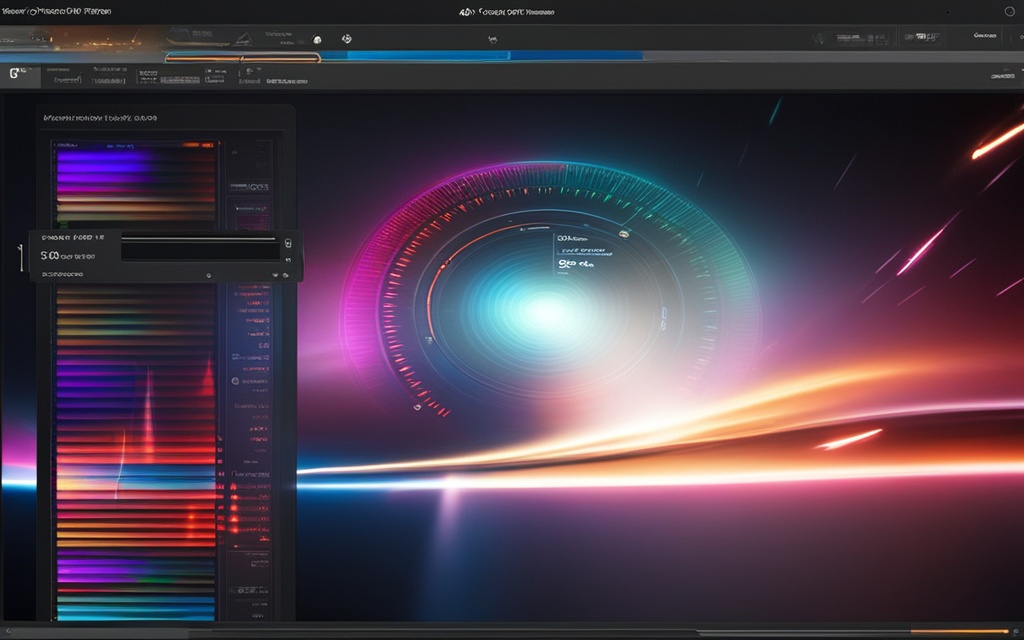Table of Contents
In today’s fast-paced tech world, it’s key to know if your laptop is Gen 4 SSD-ready. Gen 4 SSDs bring a major boost in storage performance, desired by many. These aren’t your regular SSDs. They zip through data at incredible speeds, a must for those needing fast access and quick processing. But, not every laptop can keep up with this high-tech gear. You must check your laptop’s specs before thinking about an upgrade12. Let’s dive into the world of Gen 4 SSDs and see how to make sure your laptop can use their power to the fullest.
Key Takeaways
- Gen 4 SSDs can significantly enhance storage performance and speed.
- Checking laptop compatibility with Gen 4 SSDs is crucial for a successful upgrade.
- Modern laptops often support PCIe Gen 4 technology, but verifying specifications is essential.
- Choosing the right SSD capacity can reduce the frequency of required upgrades.
- Popular brands, like Samsung and Crucial, offer a variety of options for consumers.
Understanding Gen 4 SSD Technology
Gen 4 SSDs have become very popular in storage thanks to PCIe 4.0 technology. This tech boosts data transfer speeds well above Gen 3. This gives them a big advantage.
What Makes Gen 4 SSDs Different?
This technology has data rates twice as fast as PCIe Gen 3. It allows for transfers at about 4 gigabytes per second (GB/s). This is a big step up from the past3.
In their x4 configuration, Gen 4 SSDs can reach up to nearly 8GB/s2. With their increased bandwidth, these SSDs excel at handling data-heavy applications. They offer unmatched utility and performance.
Performance Benefits of Gen 4 SSDs
Gen 4 SSDs bring big benefits in performance. For instance, they can transfer two files of 32 billion characters each in just a second3. This shows their powerful data transfer capability.
There’s a growing use of PCIe Gen 4 SSDs in enterprise applications to meet growing bandwidth needs3. Samsung’s 980 PRO, for example, offers speeds nearly double those of older SSDs. This boosts speed and reliability for users2.
These enhancements reduce wait times in tasks like gaming and application loading. This makes everything much more efficient.
Does My Laptop Support Gen 4 SSD?
To figure out if your laptop can use Gen 4 SSDs, look at a few key things. You need to check your laptop specifications. This includes the motherboard, the type of connectors, and the PCIe versions it supports.
Key Indicators of Compatibility
Checking your laptop’s specs is crucial to find out if it can run SSD compatibility. Many new laptops fit with M.2 NVMe SSD connectors. These are important for the best performance from Gen 4 SSDs. For example, the Acer Swift 3 shows how easy upgrades can be if you know which models are supported. This points out the importance of knowing compatibility facts. Gen 4 SSDs transfer data twice as fast as Gen 3, making everything smoother for the user2.
Understanding PCIe Versions
The type of PCIe version your laptop has is key to better performance. Gen 4 works at 16 GT/s, and Gen 5 could double that. So, for the best speed, your laptop needs PCIe 4.0 at least. A x4 SSD with PCIe 4.0 can reach speeds near 8GB/s. This huge jump can make your laptop start faster and load apps quicker4.
SSDs using PCIe 4.0 are great for heavy apps, giving you a smoother computing time.
| PCIe Version | Data Rate | Theoretical Throughput |
|---|---|---|
| PCIe 3.0 | 8 GT/s | ~4GB/s |
| PCIe 4.0 | 16 GT/s | ~8GB/s |
| PCIe 5.0 | 32 GT/s | ~16GB/s |
Knowing these details can make sure your SSD fits well and boosts your laptop’s speed.
How to Check Your Laptop’s Compatibility
Figuring out if your laptop can handle Gen 4 SSDs might seem tough at first. But you don’t have to worry about opening up your laptop. By using command line tools that come with most operating systems, you can find out what hardware your laptop has.
Using Command Line Tools
Many systems have command line tools that tell you if you can use Gen 4 SSDs. For Windows users, the Command Prompt offers a way to check your laptop’s parts:
- Start by searching for “cmd” in the search bar to open Command Prompt.
- Type in wmic diskdrive get model, size to see your SSD’s model and size.
- For the PCIe version, type wmic path Win32_PnPEntity where “DeviceID like ‘PCI%'” get Caption.
These steps will show you if your laptop supports a Gen 4 SSD. This type of SSD works at double the speed of Gen 3, reaching 16 GT/s (gigatransfers per second)4.
Reviewing Laptop Specifications
Checking your laptop’s specs is another good way to find out if it’s compatible. Look on the manufacturer’s website for detailed info about your model, such as:
- The type and generation of the processor
- Which PCIe versions it supports
- The max storage it can handle for upgrades
Take the AERO 16 Creator Laptop as an example. It boasts great specs, able to work with PCIe Gen4x4 SSDs up to 4TB. This means faster speeds and better overall performance5. Make sure your system matches up so you can upgrade effortlessly. For tips on how to add more storage, check out this storage guide.
Common Issues with Gen 4 SSD Implementation
Switching to Gen 4 SSDs can make your laptop faster but brings its own challenges. One major problem is overheating. This is because these drives produce a lot of heat. As many laptops don’t have good airflow, they can’t cool down properly. This leads to SSD issues, harming performance and shortening the drive’s life.
Potential Overheating Problems
Gen 4 SSDs are efficient but need better cooling. If not cooled well, laptops may slow down to control the heat. This slowdown can cause laptop performance bottlenecks. Keeping an eye on system temperatures is vital. It ensures your laptop benefits fully from the Gen 4 SSD upgrade.
Performance Bottlenecks in Laptops
While Gen 4 SSDs are fast, they can reveal weaknesses in other laptop parts. If the processor or RAM is old, it might not keep up with the SSD. This means you won’t see much improvement. It’s important to check if all your laptop’s parts work well together. For tips on improving your computer’s speed, check out this guide. It has useful advice for dealing with SSD challenges.
Conclusion
In summary, upgrading to Gen 4 SSD technology is a big chance to boost your laptop’s speed. It offers top-notch features like a data transfer rate of 16 GT/s. This means quicker application loading times and better system responsiveness64. Yet, it’s important to check if your device can handle this upgrade. The compatibility mainly depends on the type of motherboard your laptop has, primarily if it’s from AMD or Intel.
Also, Gen 4 SSDs clearly improve performance. But, it’s wise to think about what your laptop can handle before making changes. Not every laptop has the right slots for these upgrades, which is crucial to know7. Knowing your device’s design helps make the upgrade process smooth and ensures you get all the benefits of this new technology.
In the end, being well-informed about your laptop’s features and limits is key when upgrading. This doesn’t just make the upgrade easier but also gets you ready for the next steps in storage technology. As apps demand more, choosing the right SSD is vital. It boosts performance and adds to your laptop’s life.
FAQ
What is a Gen 4 SSD and how does it differ from previous generations?
A Gen 4 SSD operates with PCIe 4.0 tech. It boasts much quicker data transfer speeds than Gen 3 SSDs. This speeds up how fast applications and games load. It’s a big boost to storage performance.
How can I determine if my laptop can support a Gen 4 SSD?
Start by looking at your laptop’s motherboard specs. Check the connectors and the PCIe version it supports. You can also use tools and commands to find out what your laptop can handle.
What are the common indicators that my laptop supports Gen 4 SSDs?
Look for a PCIe 4.0 interface and motherboard models known to work with Gen 4 tech. Checking with others who have the same laptop model might also give you clues.
Are there any performance benefits associated with using a Gen 4 SSD?
Indeed, Gen 4 SSDs bring big performance boosts. Expect faster startups, quicker loading of apps, and smoother operation. They’re a top choice for anyone wanting more speed.
How do I check my laptop’s compatibility without opening it?
You can turn to command line tools in your OS to test for compatibility. Looking up your laptop’s specs on the manufacturer’s site is another good step.
What challenges might I face when upgrading to a Gen 4 SSD?
One issue could be overheating, as Gen 4 SSDs run hot, especially in tight laptop spaces. You might also hit a wall if other laptop parts can’t keep up with the SSD’s speed.
Should I consider upgrading to a Gen 4 SSD?
If faster performance is what you’re after and your laptop is up for it, then yes. A Gen 4 SSD can make a big difference. Just make sure your laptop can fully utilise it.
Source Links
- https://www.crucial.com/articles/about-ssd/how-to-find-an-ssd-for-your-laptop – How to Find the Best SSD for Your Laptop
- https://insights.samsung.com/2024/03/07/what-is-pcie-gen-4-for-ssds-and-how-does-it-compare-to-gen-3-and-gen-5/ – What is PCIe® Gen 4 for SSDs, and how does it compare to Gen 3 and Gen 5? – Samsung Business Insights
- https://phisonblog.com/nand-flash-101-what-is-pcie-gen-4-ssd-and-why-is-it-important-2/ – NAND Flash 101: What Is PCIe Gen4 SSD and Why Is It Important? – Phison Blog
- https://www.kingston.com/en/blog/pc-performance/pcie-gen-4-explained – What is the difference between PCIe Gen 3 and PCIe Gen 4?- Kingston Technology
- https://www.gigabyte.com/Laptop/AERO-16–Intel-12th-Gen – AERO 16 (Intel 12th Gen) Key Features | Laptop – GIGABYTE Global
- https://www.trentonsystems.com/en-us/resource-hub/blog/pcie-gen-4-reference-guide – Everything You Need to Know About PCIe 4.0
- https://www.tomshardware.com/features/upgrading-your-laptop-with-pcie-40-storage-which-ssd-is-the-best – Upgrading Your Laptop with PCIe 4.0 Storage: Which SSD is the best?












